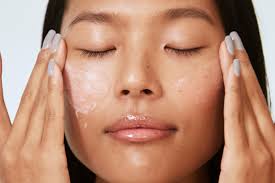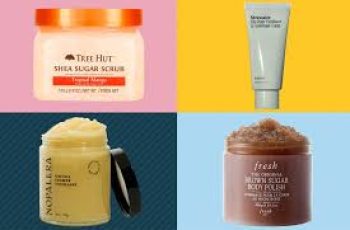
5 Ways Your Mood Can Affect Your Skin
Being stressed out can have a major impact on your health — and that extends to your skin health, too. Stress can lead to breakouts and exacerbate conditions such as eczema and psoriasis, experts say, and that’s just one example of how what you’re feeling on the inside can show up on the outside.
“Your mood can absolutely affect your skin, and your skin can affect your mood,” says the board-certified dermatologist Doris Day, MD, who practices in New York City.
In addition, the act of caring for your skin can itself confer mood benefits. A solid skin-care routine can help you develop mindfulness, improve your mood, and show yourself some kindness — sometimes exactly when you need it most.
Your mood and emotions can also have a major impact on the health of your skin. Here are five ways your psyche might show up on your skin’s surface.
1. Stress Can Make It Harder to Control Eczema, Rosacea, and Other Skin Conditions
When you feel tense, your body releases a hormone called cortisol, which triggers a fight-or-flight response. Per the Cleveland Clinic, cortisol isn’t all bad — it can give us energy during the day, for example — but it’s also associated with a range of unpleasant side effects.
Skin-wise, that includes poor wound healing and worsening inflammatory skin conditions, says Joshua Zeichner, MD, the director of cosmetic and clinical research in dermatology at Mount Sinai Hospital in New York City.
“We know that stress has a negative impact on the skin,” Dr. Zeichner says. “The brain increases production of a hormone called CRH. The hormone tells our adrenal glands to produce extra cortisol to prepare our bodies for flight or fight.”
As past research notes, CRH stands for corticotropin-releasing hormone. Zeichner says CRH binds to our oil glands, increasing oil production, and the extra oil can contribute to skin breakouts.
One small study, for example, found that increased acne severity was significantly associated with higher stress levels. Another study, published in 2017 in Clinical, Cosmetic, and Investigational Dermatology, found that among female medical students in their twenties, higher levels of stress were also correlated with acne severity.
Eczema (which is sometimes called atopic dermatitis) can cause symptoms such as dry, itchy, and sensitive skin, per the National Eczema Association (NEA). The NEA says anxiety and stress commonly cause eczema flare-ups (which, the organization points out, can then lead to even more anxiety and stress).
What’s happening exactly? Our body’s physiological stress response floods us with the hormones adrenaline and cortisol, which can ultimately cause inflammation and suppress the immune system, NEA explains.
Stress is part of everyday life and unavoidable, of course. So, it’s worth noting that the goal isn’t to eliminate all stress, but to learn how to manage it in productive ways so it doesn’t spiral out of control.
Another common skin condition, rosacea — which is characterized by facial redness and inflammatory lesions — can also flare up because of stress, notes the Cleveland Clinic. Certain peptides that the nervous system releases in response to stress may cause inflammation and dilate blood vessels, prompting blushing and flushing, according to the National Rosacea Society (NRS). An earlier survey from the NRS indicated that two-thirds of those questioned said that stress management (changing your response to stress in your life), helped reduce symptom flares.
According to the American Psychological Association (APA), other skin-related issues can be exacerbated by stress, such as psoriasis, itchiness, and hives. Here’s why.
Because stress has an impact on the immune system, it’s a known trigger for psoriasis, which is an autoimmune condition (in which an overactive immune system causes the body to mistakenly attack its own tissue).
Stress, anxiety, and itch share common pathways in the nervous system, and one can lead to the other, as research in the April 2018 Neuroscience and Biobehavioral Reivews found.
When stress puts your body into a state of fight-or-flight, histamines are released, and some people find they get hives as a result, explains the American Institute of Stress.
Debra Jaliman, MD, a board-certified dermatologist in New York City and the author of Skin Rules, recommends her patients try to manage their stress to prevent it from manifesting on their skin. Some of her favorite suggestions: calming music, a warm bath, or a massage.
2. Anxiety Can Trigger Skin-Picking
Some people pick at their skin to cope with feelings of anxiety. Chronic skin-picking is a body-focused repetitive behavior related to obsessive-compulsive disorder, according to Mental Health America.
This is a mental illness caused by genetics and changes in brain structure related to habit formation, as well as stress and anxiety, per MHA. “Don’t judge yourself or be hard on yourself if you have [this],” says Dr. Day. Treatment includes a combination of antidepressant medication, such as an SSRI, as well as cognitive-behavioral therapy (CBT).
Anna Chacon, MD, a Miami-based board-certified dermatologist and writer with MyPsoriasisTeam, says she commonly sees patients who are anxious engaging in behaviors like pulling their hair or picking their skin. Another example, she says, is acne excoriée, which is “observed in individuals who frequently pick at their acne bumps.”
Research has found that stress and anxiety worsen acne excoriée — and “unfortunately, sometimes it can leave scarring,” Dr. Chacon says. In addition to scarring, skin picking can create wounds or open up old ones, which can lead to infection, and it can create a cycle of shame and embarrassment, notes Cleveland Clinic.
Healthy habits, such as exercise and mindfulness, can help someone manage anxiety, according to the National Institute of Mental Health (NIMH).
Occasional anxiety is completely normal. But if it lingers and worsens and begins to interfere with your daily functioning, it’s a good idea to seek help, according to NIMH. When it comes to skin-picking disorders, it can be difficult to find an expert who is familiar with the condition. The platform SkinPick has a state-by-state directory of treatment providers, as well as self-help resources, which is a great place to start.
3. Depression Is Associated With Unhealthy Skin-Care Habits
Daily habits such as a healthy diet and plenty of sleep promote healthy skin, per the Mayo Clinic. But people with depression may have trouble eating healthfully or getting sufficient sleep, say the Mayo Clinic and the Sleep Foundation.
“When you’re unhappy, you may not sleep well,” Day says. “You may not eat as healthy as you normally do. You may not drink enough water. You may not take deep breaths — you take more shallow breaths, and that’s oxygen that you’re not getting.” All these things can affect the health of your body, which can be reflected on your skin — your body’s largest organ.
Chacon adds that people who have depression may not tend to their self-care habits, such as their skin-care routines. Depression is a serious mental illness, one facet of which may be a lower desire for self-care measures that keep your skin and body healthy.
If you’re experiencing symptoms of depression, treatment can improve your mood, help you regain your interest in activities you enjoy, and improve your sleep, energy, and cognition, among so many other benefits. Once these aspects of life have improved, you may feel more motivated to do self-care routines, including exercise, healthy eating, and good skincare.
If you think you or a loved one has depression, seek treatment from a mental health professional.
4. Frowning Causes Wrinkles
Don’t take this as a suggestion not to express yourself, but know that showing anger with a frown can take a toll on your skin. “Constant frowning creates wrinkles that are etched into the forehead,” Chacon says.
As the Cleveland Clinic notes, the small muscle contractions that occur when you frown or squint cause lines to develop on the forehead, between the eyebrows, and around the corners of the eyes. Over time, these lines become more prominent and can lead to wrinkles.
Day recommends teaching yourself to make a habit of smiling or consciously entering a relaxed facial state. “Then you’ll sort of stimulate the emotions that will help your skin look and age better,” she says.
One of Day’s favorite tricks is to encourage her patients to lift their ears back. Even if they can’t bring themselves to smile, she says, that motion utilizes muscles that are positive and associated with smiling.
5. Good Feelings Buffer the Negative Effects of Stress on Skin
More and more dermatologists have begun to recognize the connection between mental health and skin health over the past couple of decades, according to the APA. Think about how simply feeling embarrassed or self-conscious can make you blush.
Research suggests that stress is one of the significant drivers of this connection, and why poor or low mental health can cause problems that show up on the skin (as described above).
So it would make sense that the opposite — a calm or positive mental state — would thwart these ill effects of stress on skin.
Maybe it’s thanks to increased levels of certain hormones associated with positive mood states, such as dopamine and serotonin, Zeichner says. These hormones regulate mood and keep you calm, stable, and happy, according to Zeichner and the Cleveland Clinic.
There’s not a lot of specific evidence, however, to say why positive mood boosts skin health, beyond the fact that stress (the opposite of positive mood) has negative effects on skin.
“While we need long-term studies to evaluate whether happy people age better than those who are angry or stressed, I certainly encourage my patients to do what they can to relax and be in a good mood,” Zeichner says.


